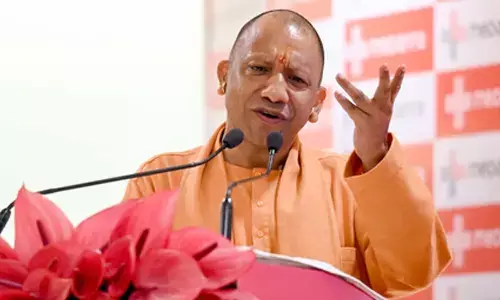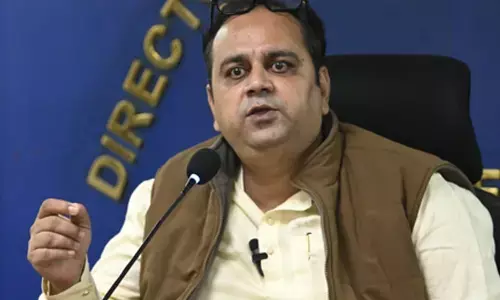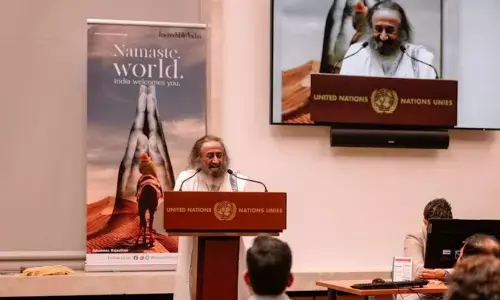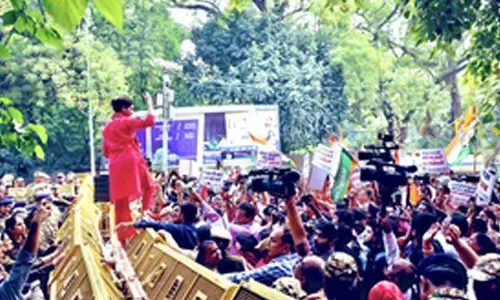AAP win in Delhi is rebirth of anti-corruption movement

The AAP\'s clean sweep of the Delhi assembly polls is a remarkable display of people power. The overwhelming mandate with its weight of expectations, as Arvind Kejriwal himself terms it, is \"scary\". The nature of the verdicts took pundits, pollsters and punters alike, by surprise. The victory has been seen as the rebirth of the anti-corruption movement by some and attributed by others to Modi\'s designer suit, Kejriwal\'s staid pullovers or a blowback from the introduction of biometric attendance in government offices. The perceived causes of such an electoral win, deserves a second look.
The AAP's clean sweep of the Delhi assembly polls is a remarkable display of people power. The overwhelming mandate with its weight of expectations, as Arvind Kejriwal himself terms it, is "scary". The nature of the verdicts took pundits, pollsters and punters alike, by surprise. The victory has been seen as the rebirth of the anti-corruption movement by some and attributed by others to Modi's designer suit, Kejriwal's staid pullovers or a blowback from the introduction of biometric attendance in government offices. The perceived causes of such an electoral win, deserves a second look.

Even as Kejriwal and AAP were basking in their electoral glory, I received a telephone call from a young relative in Kolkata, in his early twenties, just getting out of college. He was out celebrating AAP's victory. AAP in West Bengal? I am celebrating BJP's loss, he said, because it is a Hindu nationalist party, anti-poor and (surprise) anti-environment. One domain where BJP's loss has been overwhelming is in the perception battle; an area once considered its forte. Worryingly for BJP its electoral loss was celebrated by the youth in places like Bangalore and Srinagar, albeit for varied reasons.
Staying the on issue, another relative, an octogenarian and a core BJP supporter (a Jan Sanghi - BJP's political backbone) asked me a few weeks back referring to the stream of extremely discomforting comments from the Hindutva fringe elements as to what the BJP was upto and why didn't Modi do something about it. I suggested probably they were catering to the demands of certain section of the BJP vote bank. Point here is that by now BJP strategists must (and should) have realised that "minority appeasement" will still get them Hindu votes but the reverse is not necessarily true.
Another lesson BJP and other political parties can take from the AAP victory is to relook at how to connect and communicate with voters in more focussed and fruitful manner. Gigantic billboards, coloured handouts etc seem passé. Parties must do away with pre-poll inducements and let the voter vote with his mind. This will bring down the election expenditure and once a party wins it should place the saved money in a bank account at the disposal of its elected candidate as constituency welfare fund.
The BJP will be definitely running through some worry-beads on their electoral performance, but the biggest tremors of the AAP victory is likely to have been felt in the Lutyens bungalow zone at the BSP headquarters. It is a party that is fast losing the trust and goodwill of its support base and careening towards political and possibly social irrelevance. The Congress and the Left will take comfort from the fact that they still have states governed by them.
About Kiran Bedi, BJP's chief ministerial candidate; she does not have a political bone in her body. The Indian political system always shocks a lateral entrant. It shook Kejriwal too but he adapted and evolved. Kiran Bedi is unlikely to, simply because for her a "No Parking" board will always mean no parking and her working ethos lacks two phrases - "Chalta hai" and "Kya farak padta hai". The people of the Delhi constituency of Krishna Nagar have done her a favour- five years in the Delhi assembly would have been miserable for her.
The AAP manifesto has a string of promises some which AAP will soon fulfil. However, quite a few are likely to hit one or more of these three barriers. First will be those which require the union government or parliamentary approval. These will largely hit the skids, AAP will pass legislations in the Delhi assembly at cross purposes to the central government, which they will take to the courts and best use it against the BJP in electoral contests in other states.
The second is to cover the deficit in finance or revenue for welfare subsidies. AAP believes (and is counting on) measures such as "lowest VAT in the country" to create an environment for voluntary increase in tax base, hence revenue collection. For example, a merchant and his clients habitual of not generating a paper trail of their transactions are now expected to do so, voluntarily, under this dispensation.
Third, putting more buses on the road, adding beds to hospitals will not improve service delivery, but motivated people - bus drivers, nurses, doctors can. Unfortunately some people have a stilted view of what is corruption. For them denial of entitlement is corruption, but not performing their civic duties - example, sweeping the streets properly and regularly - is not. Corruption is also bred by people who do not want to follow the law. It will take more than the Jan lokpal and the "setting and stinging" combo to yield a corruption=free Delhi. AAP's main governance challenge will be to change attitudes and work ethos. To fulfil its mandate AAP will need not just alternative governance but a transformative one.
Policing will be another challenge for the incoming Delhi government in addition to cat-fights with the union government over the superintendence of the Delhi Police. It will have to evolve their interaction with the law enforcement machinery beyond conducting "night raids" for suspected trafficking and "heads to roll" on infringement of women's security. It should, as an interim step, seek administrative control of the Delhi Police; improve its recruitment and service conditions, financial awards to martyrs will not suffice. It needs to see the police not as a service delivery department of the government but as a key part of the community.
AAP's victory, as was the case in December 2013, is good for the political environment, causing it evolve and improve. However the AAP model with its populist leanings needs to be put to the governance test- 49 days were too short. If it in its second coming AAP fails to deliver in Delhi, it must be junked and, if succeeds, the model justifies country wide replication.
By Monish Gulati
Next Story

















